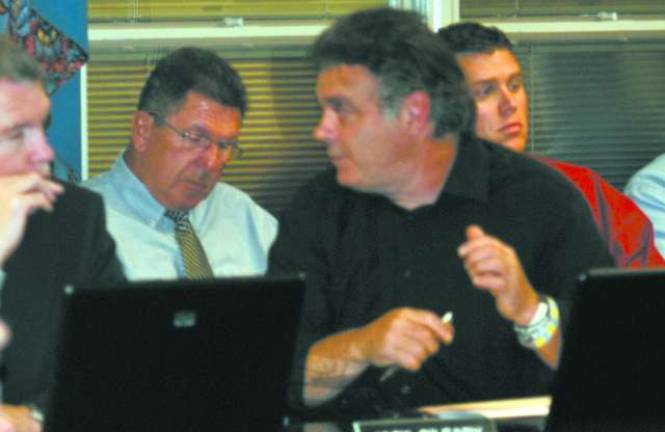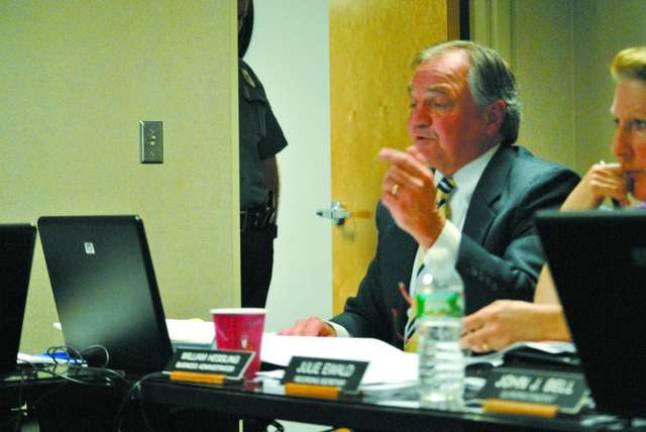O'Leary: School must control surplus spending


By Anya Tikka
MILFORD — When the Delaware Valley school board moved a $2 million surplus earmarked for pension and health care cost increases to the district's Capital Reserve Fund, Jack O’Leary was the only board member to vote "no."
“If you’ve got money left from the previous year, why did you raise taxes?" he asked the board at its October meeting. "We didn’t need it then, and we didn’t need it this year.”
The board took $324,938 from the "Revenues in excess of budget" line, plus $1.75 million from the "Expenditures under budget" line, and put them in the capital transfer fund for board-approved projects and for career and technical education upgrades. Board member Jessica Decker was absent that night.
O’Leary said that, after studying all the facts and figures, he had objected to increases put through the previous year, when he wasn’t yet on the board, and is objecting to increases again this year, as a board member with a vote.
In June 2013, he said, the board claimed that a 2.3 percent increase was needed to cover the costs of the Public School Employees' Retirement System (PSERS) and health care increases — about $1.1 million. A 2.8 percent increase was put through again this year for the same reason, he said.
“That money did not go to PSERS," O'Leary said. "That money is now sitting there, and we’re going to move it. I believe it should be done openly, transparently, and honestly. If you asked for it for one reason, it should not be used for another."
He said the board needs to explain to the public why it's asking for more money.
"I have no problem going to the people and saying, 'We did a great job with the budget, and now there’s this money,'" he said. "But I have to ask them what it should be used for. I have no problem putting it into Career Tech, but you have to ask. How can I say to people next year that we need to raise taxes for PSERS when it didn’t go to it this year? Career Tech is already included in the previous taxes."
Planning for the future
Administrators and other board members responded by saying there's no way to know what the future will hold.
“There’s no question in my mind that business expenses are going up, and will continue to go up for years," said district business manager Bill Hessling. "That’s the primary reason we have to have revenue increases. It is not unusual for a school district to have a surplus, and at that point the board has to decide where that surplus is going to go.”
Hessling said "nobody has the crystal ball."
"We underspent by less than 2 percent in a $7 million budget," Hessling said. "You’re now trying to project back to say if we knew then what we know now. We said instead of having to borrow $10.5 million for (Career Tech), that’s 2 million less to borrow with less interest. Use the $2 million for a down payment for CTE.”
O’Leary said he can't bring himself to increase taxes when he witnesses daily, in his travels around the community, people who don’t have enough to eat or to heat their homes. The surplus should either be a refund to taxpayers or put into the account covering future pension increases.
“I think the transfer shows we’re being fiscally responsible," said board vice-president Zachary Pearce. "We’re educating the public about PSERS, and I think they’re getting around to that.”
Finance Chair Jack Fisher said he thought putting money to PSERS account was the responsible thing to do.
Superintendent John Bell said collecting money for possible future needs is prudent, and what the board is meant to do. And the money was needed for PSERS, health, and salary increases, he said.
“You can’t count on getting (a surplus) each year," said Bell. "But when you get it, use it responsibly.”